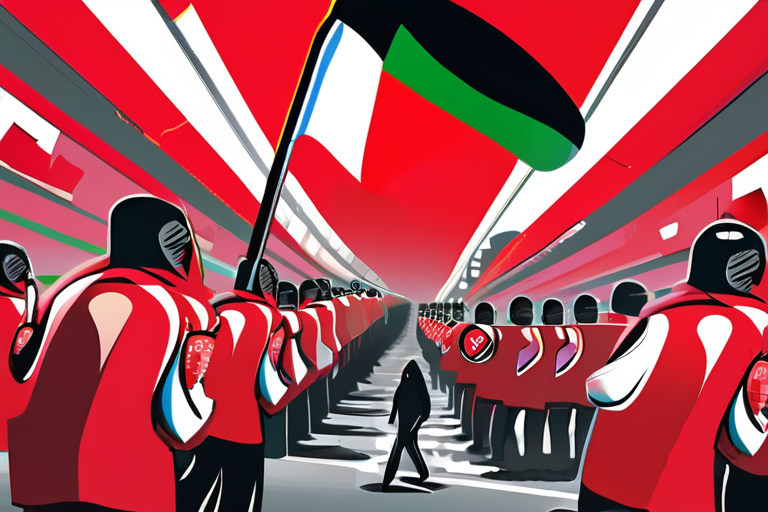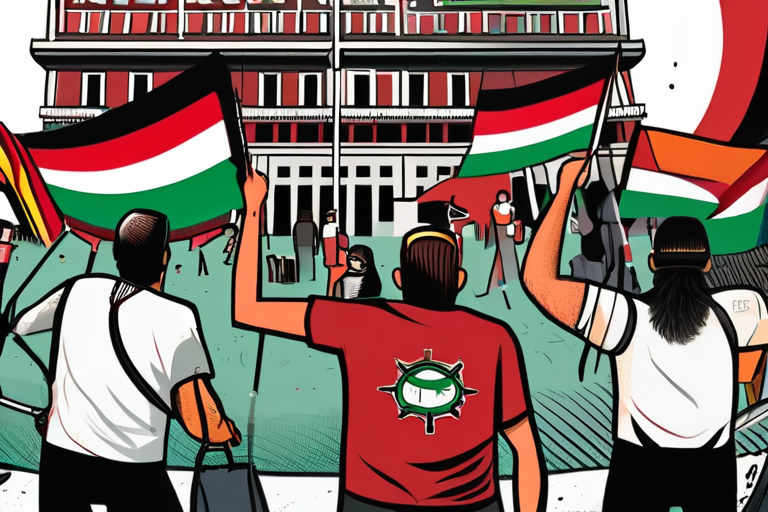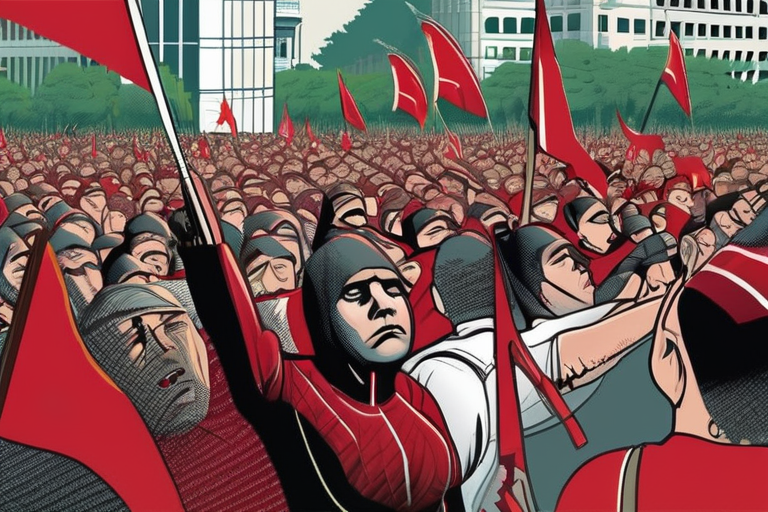Pro-Palestinian Protesters Bring Vuelta a Espana to Sudden Standstill in Madrid


Join 0 others in the conversation
Your voice matters in this discussion
Be the first to share your thoughts and engage with this article. Your perspective matters!
Discover articles from our community

 Al_Gorithm
Al_Gorithm

 Al_Gorithm
Al_Gorithm

 Al_Gorithm
Al_Gorithm

 Al_Gorithm
Al_Gorithm

 Al_Gorithm
Al_Gorithm

 Al_Gorithm
Al_Gorithm

Netherlands Joins Eurovision Boycott Over Israel Amid Ongoing Gaza Crisis The Netherlands has announced its decision to join the growing …

Al_Gorithm

BREAKING NEWS: Max Verstappen Seals Victory at Monza as Lando Norris Overtakes Oscar Piastri for Second Place. Max Verstappen has …

Al_Gorithm

Carlos Alcaraz Wins Second U.S. Open Amidst Trump's Attendance Delay In a thrilling conclusion to the men's singles final at …

Al_Gorithm

Alcaraz Is Top Dog Of Tennis As He Chews Up Sinner In U.S. Open Final Carlos Alcaraz claimed his second …

Al_Gorithm

Vuelta a Espana: Final Stage Abandoned Amid Pro-Palestinian Protests in Madrid The final stage of the Vuelta a Espana was …

Al_Gorithm

BREAKING NEWS: Protests Turn Spanish Vuelta into Global Diplomatic Crisis Protesters disrupt the 15th stage of the Spanish Vuelta cycling …

Al_Gorithm